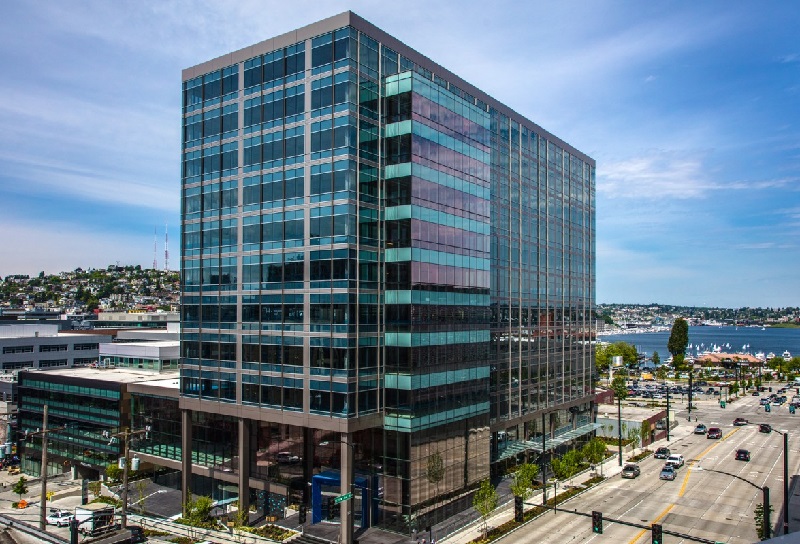Korean firms invest $87 mn in mezzanine debt for Amazon office building in Seattle
Mar 15, 2017 (Gmt+09:00)
Kyobo Life Insurance Co. Ltd. and other South Korean institutions have invested 100 billion won ($87 million) in mezzanine debts backed by an Amazon-occupied office building in Seattle for an┬Āexpected return of between 4% and 4.5% a year.
The US online commerce giant leases the 12-story Urban Union in SeattleŌĆÖs South Lake Union for a 15-year contract from this year. The building, opened in 2016,┬Āis about a block from AmazonŌĆÖs headquarters.

The mezzanine tranche is part of the 300 billion won raised for the property, valued at about 400 billion won, according to investment banking sources on March 13.
French bank Natixis arranged the financing, after two New York-based investment firms - Tristar Capital and RFR Holding - bought the building for $269 million in January. The deal was reportedly one of the priciest sales in Seattle.
The investment by domestic institutions, including 45 billion won from Kyobo Life, was made through a five-year real estate fund raised by South KoreaŌĆÖs Hangang Asset Management Co.
Hanwha General Insurance Co. Ltd. and South KoreaŌĆÖs National Agricultural Cooperative Federation also participated in the mezzanine financing.
ŌĆ£Based on our calculation of risk-adjusted rates of return, EuropeŌĆÖs real estate market is highly attractive this year,ŌĆØ said a source of Hangang Asset. ŌĆ£We will focus on mezzanine loans for the US (real estate), and equity investments in Germany and France.ŌĆØ
By JiHoon Lee
lizi@hankyung.com
Yeonhee Kim edited this article
-

-

-
 Private equityPrivate markets open to more high-net-worth individuals: Hamilton Lane
Private equityPrivate markets open to more high-net-worth individuals: Hamilton LaneApr 16, 2024 (Gmt+09:00)
-
 InfrastructureInfrastructure secondaries continue to rise amid inflation: Stafford
InfrastructureInfrastructure secondaries continue to rise amid inflation: StaffordApr 09, 2024 (Gmt+09:00)
-
 Private equityCarlyleŌĆÖs Rubenstein sees commercial real estate undervalued
Private equityCarlyleŌĆÖs Rubenstein sees commercial real estate undervaluedApr 08, 2024 (Gmt+09:00)




